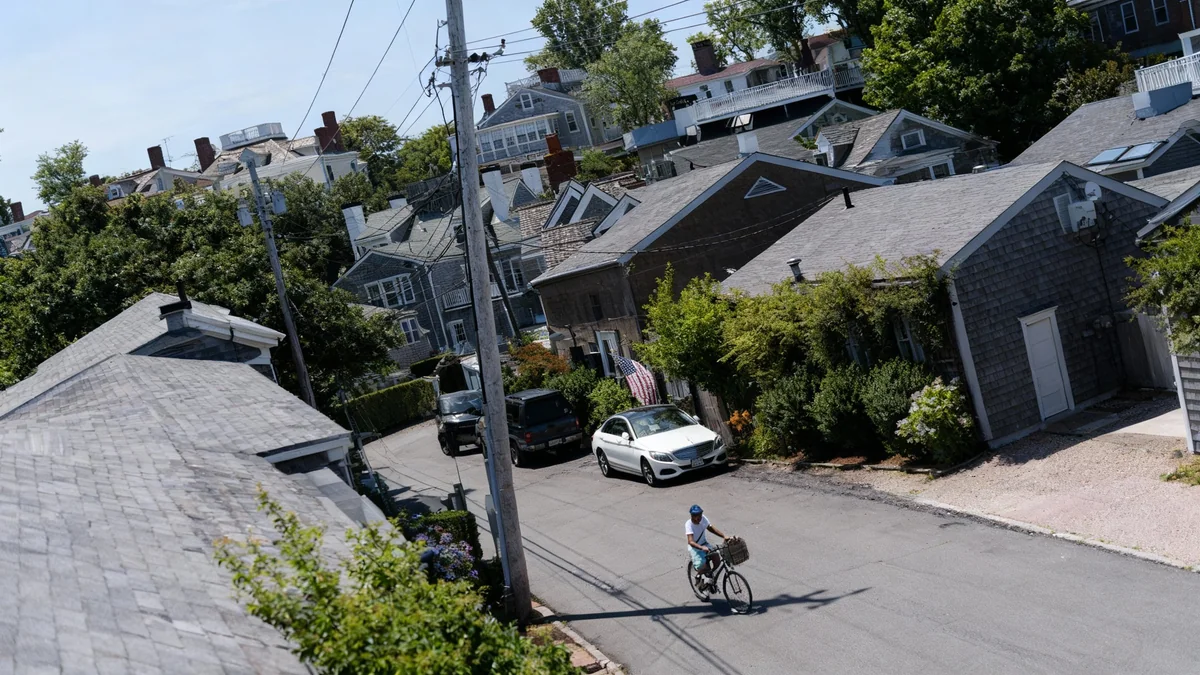Communities across Cape Cod and the Islands are grappling with a severe housing shortage that is forcing essential year-round workers, including teachers and healthcare staff, to leave the region. In response, local leaders are renewing a push for a controversial measure: a real estate transfer fee on high-value property sales to generate funds for affordable housing projects.
The proposal aims to leverage the area's lucrative luxury real estate market to address the growing gap between local wages and soaring housing costs. However, the plan faces significant opposition from real estate industry groups who argue it could harm the market and prove to be an unreliable source of income.
Key Takeaways
- Cape Cod and the Islands face a critical shortage of affordable housing for year-round employees.
- A proposed real estate transfer fee would tax property sales over $1 million to fund housing initiatives.
- Proponents say the fee is essential to keep workers in the community, while opponents fear it will damage the housing market.
- The measure failed on Beacon Hill last year but is being reintroduced with broader regional support from towns like Nantucket, Provincetown, and Wellfleet.
An Unsolvable Equation for Local Workers
The housing crisis on Cape Cod and its neighboring islands has reached a critical point. Essential community members, from hospital workers and municipal employees to restaurant staff, are finding it impossible to afford to live where they work. This exodus threatens the stability and functionality of these popular seasonal destinations.
Local officials report that traditional solutions like state grants and zoning reforms have not been enough to keep pace with the problem. The median home price on Martha's Vineyard hovers around $1.5 million, while on Nantucket, it exceeds $3 million. These figures place homeownership far out of reach for the majority of the year-round workforce.
"The bottom line is, we can’t solve this problem without money," said Jay Coburn, CEO of the Community Development Partnership, a local housing nonprofit. "Without additional resources to close the gap between what people can afford and what it costs to create housing, we won’t solve the housing problem."
The issue is not limited to homeownership. Rental options are also scarce and expensive, creating a situation where even well-paying jobs do not guarantee stable housing.
What is a Real Estate Transfer Fee?
A real estate transfer fee, or transfer tax, is a one-time tax imposed on the sale of a property. The proposed legislation for the Cape and Islands would apply this fee primarily to the portion of a sale price above a certain threshold, such as $1 million. The revenue generated would be specifically earmarked for creating and preserving affordable housing within the community where the sale occurred.
The Proposed Tax on Luxury Sales
To generate a dedicated funding stream, leaders are advocating for the state to authorize a local-option real estate transfer fee. One version of the proposal, included in Governor Maura Healey’s housing bond bill, would allow municipalities to levy a fee between 0.5% and 2% on property sales exceeding $1 million or the county's median home price.
The Barnstable Assembly of Delegates is also exploring a regional approach. Their plan would permit participating towns to set a rate between 0.5% and 4% on sales over $1 million. This framework would direct 90% of the revenue to local housing trusts, with the remaining 10% supporting regional housing efforts and administrative costs.
"There are people who want to stay here but don’t make enough to buy a house. They don’t even make enough to rent," explained Susan Warner, the Yarmouth delegate for the assembly, during a recent meeting. She stressed that funding for this demographic is unlikely to come from state or federal sources alone.
A Renewed Legislative Push
This is not the first attempt to pass such a measure. A similar effort was blocked on Beacon Hill last year, partly due to a strong lobbying campaign led by the Greater Boston Association of Realtors. Now, the initiative is returning with more unified backing from towns across the region, including Provincetown, Wellfleet, and Eastham, alongside longstanding advocates from Nantucket and Martha's Vineyard.
State Senator Julian Cyr, who represents the district, has filed legislation to cover all seasonal communities, signaling a more coordinated regional strategy this time around.
Industry Pushback and Market Concerns
The proposal is not without its critics. The real estate industry remains firmly opposed, arguing that the fee would introduce new costs and instability into the market.
"The transfer fee seems to be the cause that everyone thinks is going to solve the housing crisis," said Betsy Hanson, CEO of the Cape Cod and Islands Association of Realtors. "We don’t agree."
Hanson and her organization believe the tax would have a "detrimental impact on the market," potentially discouraging sales and harming both buyers and sellers. They also question the reliability of the revenue stream, pointing to fluctuating sales volumes as a potential weakness.
Barnstable County Market Snapshot
- Home Sales (Sept. 2025): 1,968 single-family homes sold, down from 2,050 the previous year.
- Median Price (Sept. 2025): $775,000, a decrease from $810,000 in 2024.
Opponents of the transfer fee argue these figures show that the market is already cooling, making it a risky time to introduce a new tax.
Lessons from Other Resort Communities
Supporters of the transfer fee point to other high-end resort areas where similar taxes have been implemented successfully. Both Nantucket and Martha’s Vineyard already have conservation land bank fees that have generated hundreds of millions of dollars for land preservation.
Beyond Massachusetts, other destinations have used property taxes to address community needs. Aspen, Colorado, has a long-standing program funded by such fees, while towns in the Hamptons on Long Island use a "Mansion Tax" to fund affordable housing.
Laura Silber, an island housing planner for the Martha’s Vineyard Commission, argues that these resort markets are driven by luxury demand, not local income levels. "There is no scenario in which increasing market-rate inventory will increase housing supply enough to bring prices down," she stated, emphasizing that market-rate homes are simply inaccessible to the local workforce.
On Nantucket, where the housing affordability gap is estimated at $750 million, the need is particularly acute. Tucker Holland, executive director of the Nantucket Land Trust, calculated that the proposed fee could have raised $5 million last year alone.
"You can see the train wreck coming," Holland said. "Why not give these communities the ability to avoid or fix it?"





